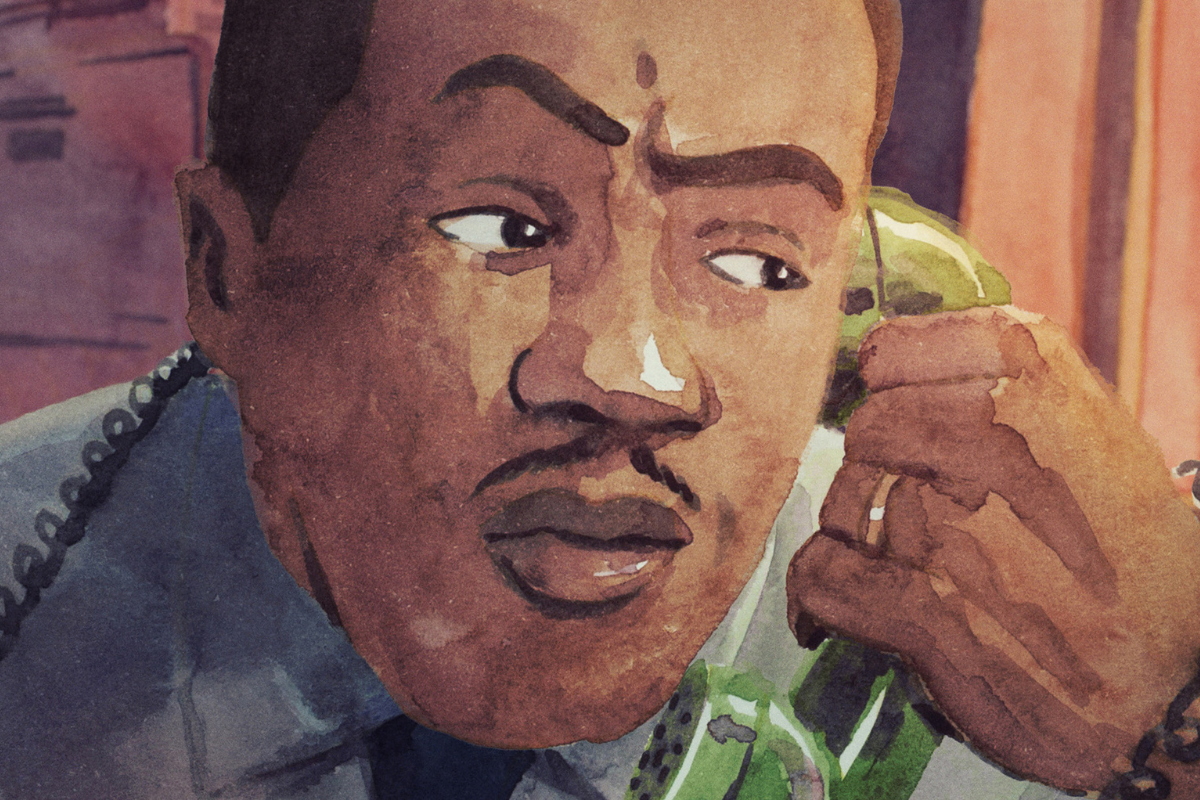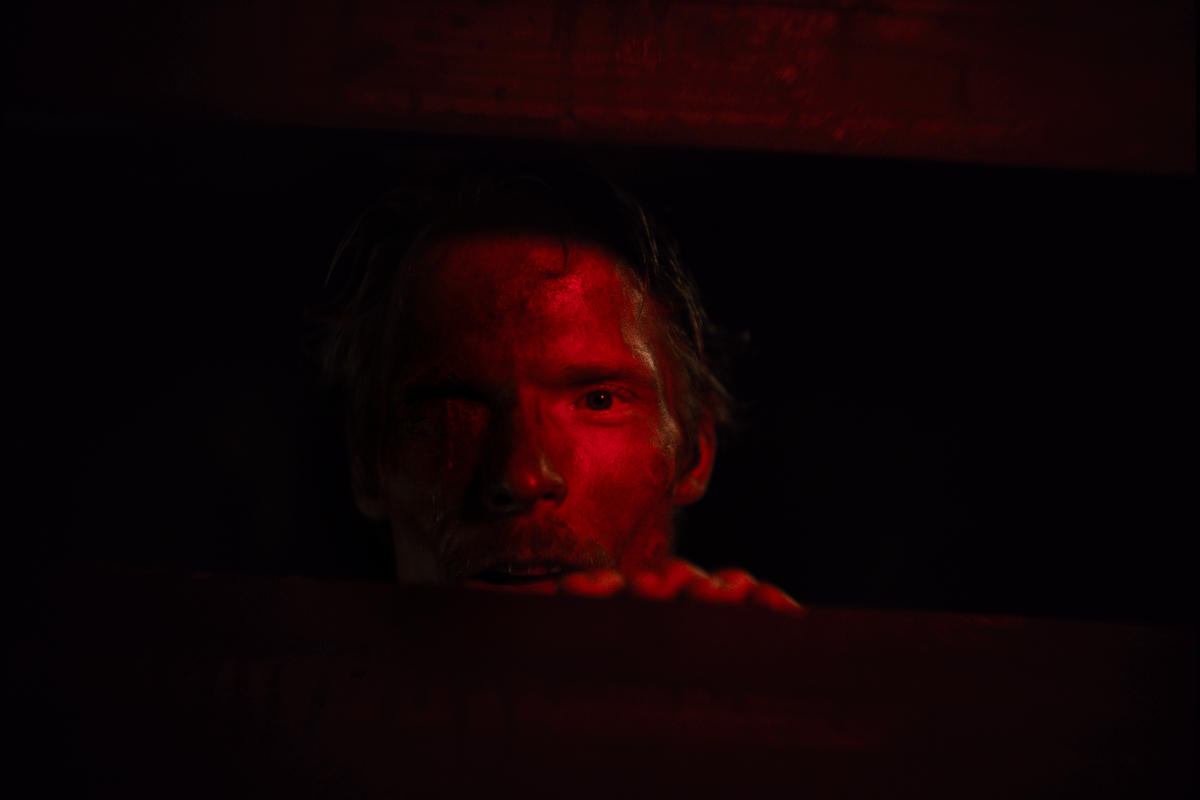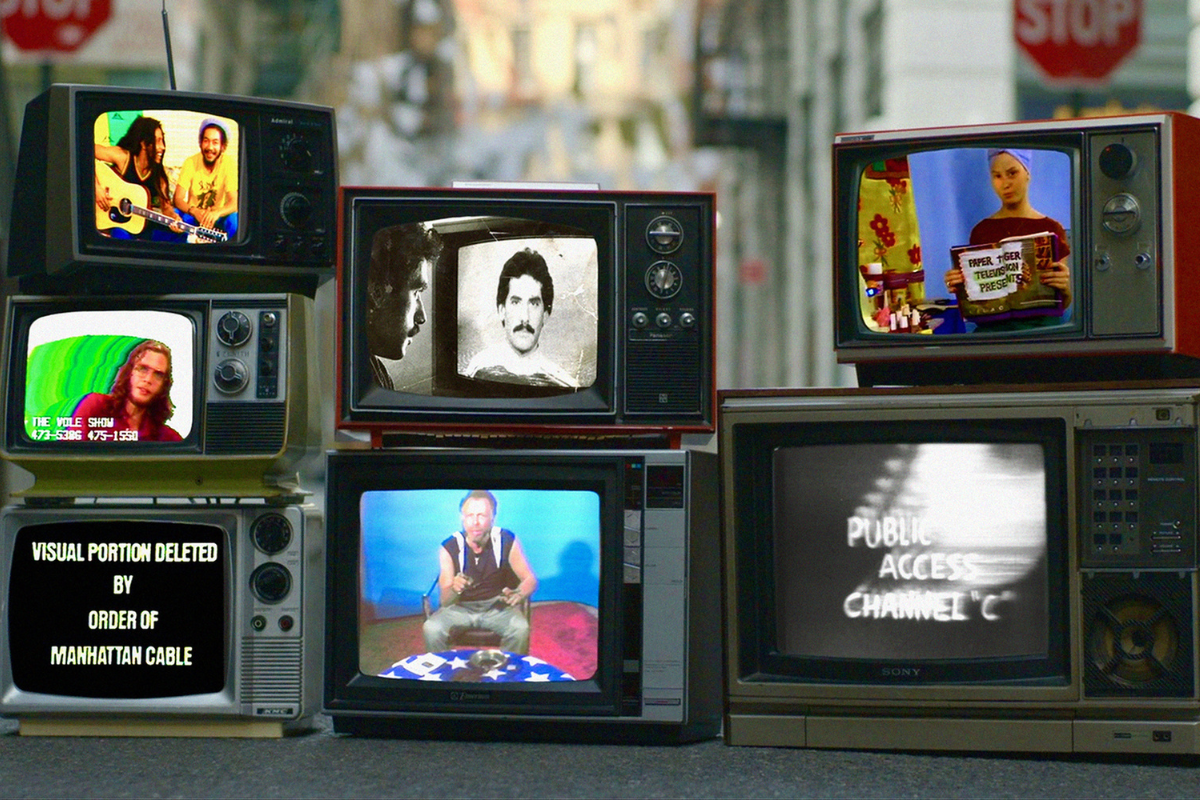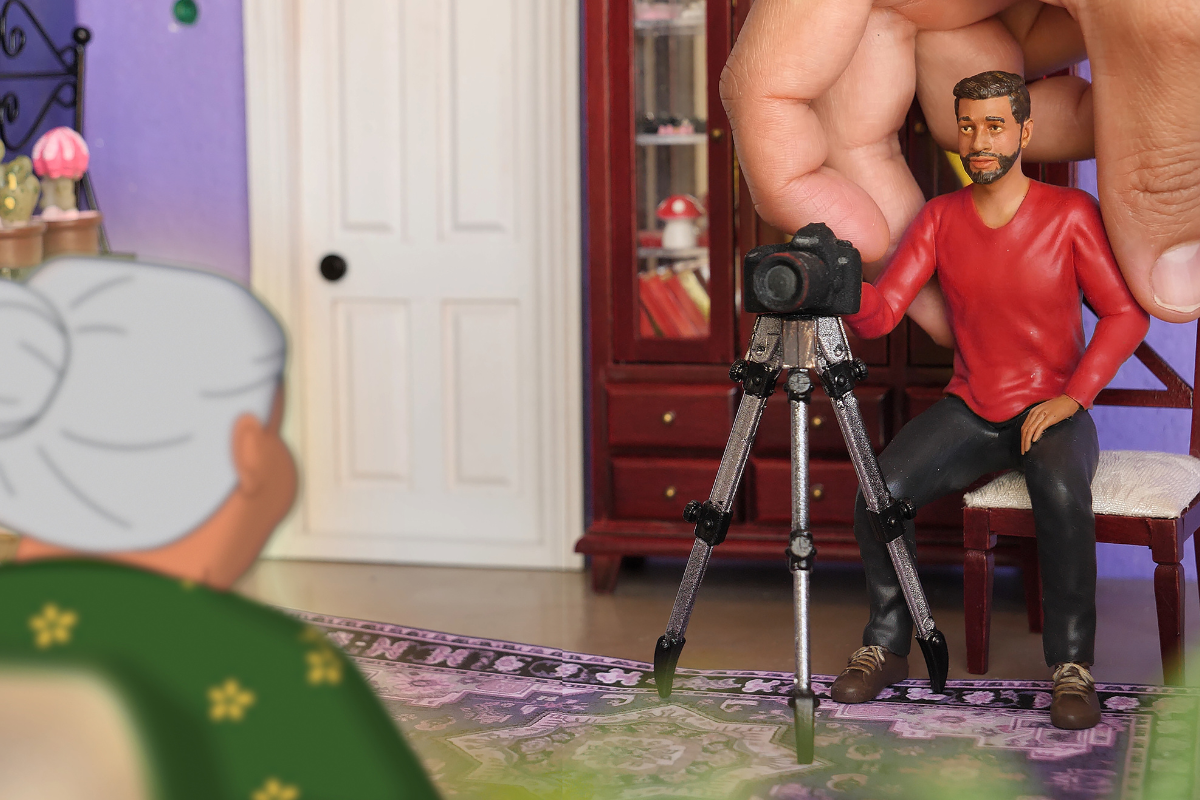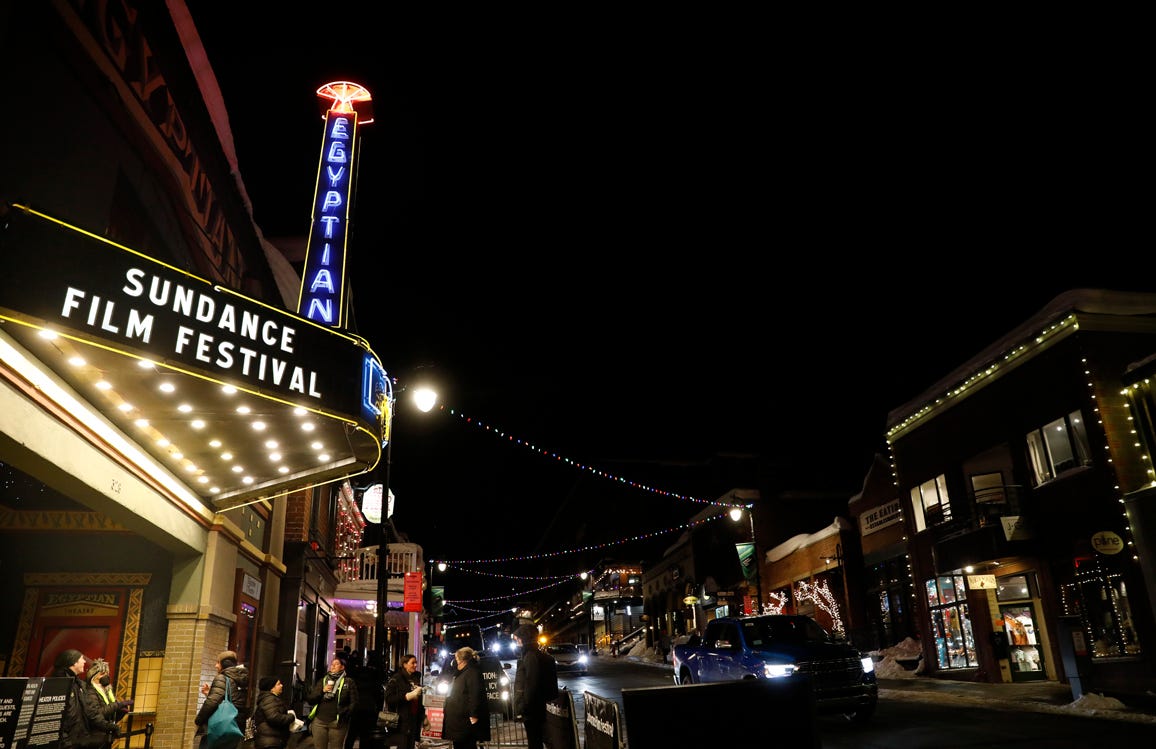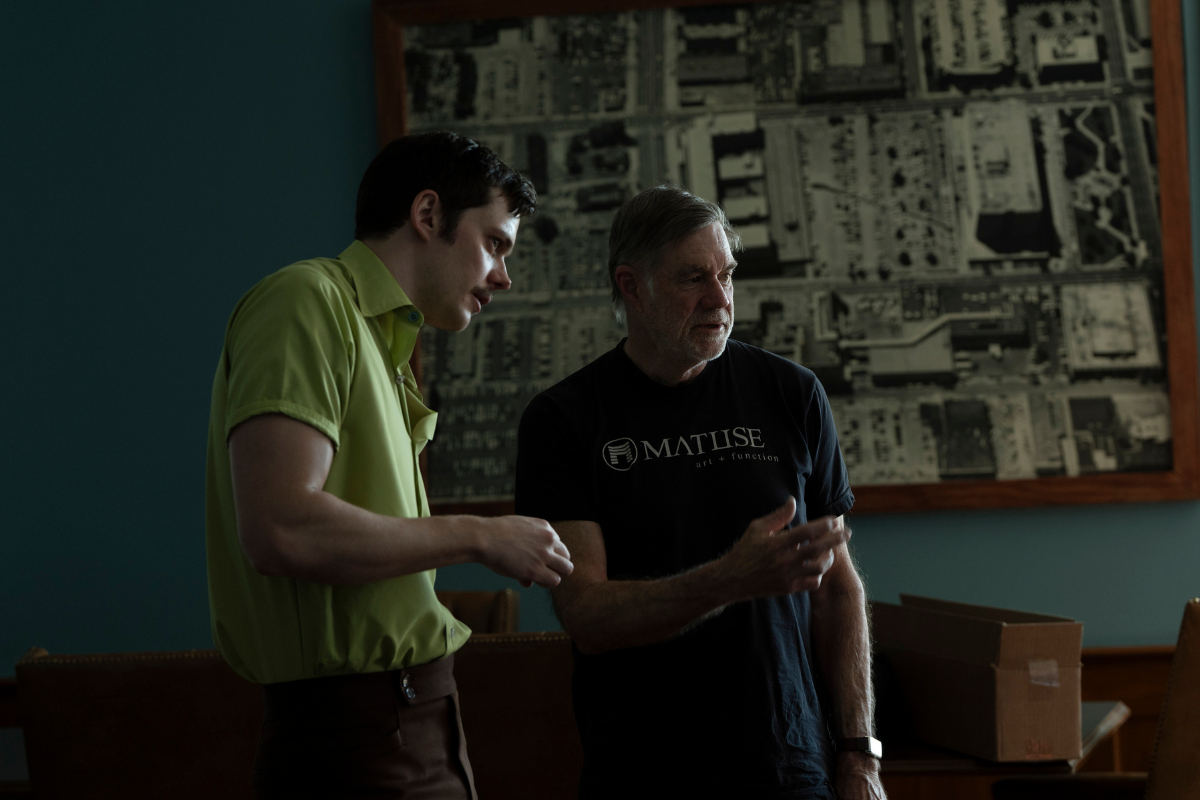The Unification of The Art of Storytelling: A Conversation with Mammoth Film Festival Co-Founders Tanner Beard and Tomik Mansoori
Mammoth Film Festival co-founders talk about the ethos behind creating the film festival, how this festival stands out from the others, and offer advice for those interested in submitting their short and feature films to the festival.
As the Mammoth Film Festival enters its sixth year, it has become a staple film festival and gathering in the industry. From community outreach to indie filmmaker opportunities to network, learn industry insider information at panels, exhibit your films, and rub elbows with tastemakers, it's a no-brainer why this seemingly "new kid on the block" film festival has taken off. And that's truly thanks to the festival's co-founders and filmmakers alike, Tomik Mansoori and Tanner Beard.
Tomik and Tanner recently took some time to speak with Script about the ethos behind creating the film festival, how this festival stands out from the others, and offer advice for those interested in submitting their short and feature films.
This interview has been edited for content and clarity.
Sadie Dean: Let’s first talk about your filmmaking journeys and how that led the two of you to connect and create this festival.
Tomik Mansoori: So, Tanner and I had actually met years and years and years and years ago, through mutual friends. And then we actually reconnected because of film. I had left the experiential marketing and event production world and ventured into film. And one of the first films I ever worked on, that's when Tanner and I teamed up, it was a movie that we were working on at the time called Riptide with Val Kilmer, and that's how we reconnected. And then from there on, we just stuck together and produced other projects together and then created the festival together. But that's how we crossed paths.
My background comes from producing, but more on the events and the marketing side of things. I was a VP at an agency where we did the Paris Hilton parties, Seth MacFarlane parties, Beats by Dre, corporate stuff, and it's essentially producing a movie, the budget, breakdown, and the crew and all that over one or maybe two days. And a friend of mine recruited me to come produce a movie, which I'd never done before, and he's like, ‘Dude, it's just like an event, but over like 28 days.’ He wasn't wrong.
Sadie: And what about you Tanner? I know that you're like a jack of all trades coming into this.
Tanner Beard: [laughs] Jack of all trades, a Master of None, right? Yeah, good question. I guess I'm a film festival rat. I got to compete in probably eight of the 10 biggest in the world. I just really got my career from film festivals, everybody I continue to work with came from film festivals. Mammoth Lakes, California is just down the road from Los Angeles, and I just saw it to be this wonderful little place. I was shooting a little TV show there in Mammoth, and I was like, ‘Man, this place is really, really cool…What a great place to house a film festival,’ and I just loved the idea of kind of being in control of that. Because it's like we can do this like Sundance does, we can do this like South by does, we can have these nice red carpets like Berlin, and we can do media like they do at Cannes and tie it up with a big bow and put our logo on it. We connected with Theo Dumont, who runs the HollyShorts Film Festival, for our nuts and bolts of like, ‘How to get this thing accomplished?’ And then we teamed up with a fellow actress and filmmaker Alexandra Chando, and we had four wheels to move the car at that point.
Sadie: So, I'm curious, because there are so many festivals, especially now compared to 20 years ago, there's 1000s of festivals that people can submit to. And talking about the top 10 big ones that we all know about, there's something about those that don't really cater so much to the true indie filmmaker, and I feel like your guys' is kind of that place for the indie storytellers. When you were starting out on this venture with the film festival, was there a mission statement that you made for this festival to really distinguish your goals from the others?
Tanner: I appreciate that question, you know what I love about our film festival is I don't care if you're a one-eyed monkey who grabbed a camera and was able to find a way to push record on it and made a movie - it doesn't matter what you are to us. Everybody's just a filmmaker at our festival. We don't have niches, we don't really pander or cater, because a movie is a universal thing. Just as much as music is, art is universal just as much as other forms. And that's what I think it could be, that's just as unique as what our film festival is, just as much as if you have a film festival that's only showing sailor movies.
We are just filmmakers standing shoulder to shoulder with everybody else. I don't like to differentiate. Diversity is already going to come with the stories that are told. So, give us your Westerns, give us your horror films, give us your dramatic art pieces, because they're all welcome at our film festival. There is nothing that will separate you from another filmmaker at our festival aside from you got behind the camera, and you told a story. And some people don't want to hear that. But I think it's just as pretty as trying to find a niche and niches are beautiful things. That's just not what we really do at ours.
I think the unification of the art of storytelling is what our film festival stands for the most and that's tough because people want to come in and try to pay us to be swayed for their agendas or whatever. We're like, ‘Hey, I'll tell you what, at our film festival, you're not any other kind of filmmaker than anybody else isn't.’ And some people find that really refreshing. And I think that's why a lot of actors who are telling their first stories as a director have chosen Mammoth Film Festival as their platform for their first movies like Josh Duhamel, his first directorial debut premiered at our film festival, Jennifer Morrison, Brittany Snow, all actors turned directors have used Mammoth Film Festival as their platform for their world premieres of their features or shorts. And it's really cool for me and Tomik, a lot of these are our peers and fellow friends in this industry. We're a film festival made by filmmakers. In fact, Mammoth Media Institute, which is just kind of another name for Mammoth Film Festival throughout the year, we just completed two movies this year that we're going to premiere at the festival this year. And that's six years of growth. We're like a six-year film festival operating as a 25-year film festival in comparison.
Tomik: And to add to what Tanner is saying and just kind of answer your question as well, we aren't reinventing the wheel, there are like 2000 film festivals. And what we've noticed, we've kind of grown in the direction that the filmmakers have given us feedback on, what we hear is that this is like the old Sundance, this is very intimate, filmmakers get to interact with each other. All these festivals have these passes, and badges and exclusivity and kind of lock you out of things, where we try to incorporate these gatherings and these meeting spaces for people to come together and work together. We've had so many people meet at the festival, go on and work on projects together, and then bring that project back. So, we create access, and we create an opportunity for you to actually meet and speak to everybody there.
Festival of Benefits from a Professional Table Read
Tanner: I know it's a long-winded answer, but one thing I will say too, that's very important for us, we are building a film marketplace. So, one thing that a lot of film festivals… a handful will only allow you to try to get your movie bought and sold there. That is what we have to specialize in, because that's what will separate us from the herd, right? That's why Sundance is so valuable. That's why Toronto is so valuable, and Cannes, Berlin…South by it's more of a kind of a publicity place, but people buy and sell movies there too. For us, it's Q1, we're in February'ish-March, so we have to be able to let a filmmaker know that their movie might have a possibility of finding distribution, because if not, you're just showing movies on a screen.
And that's really important, because we're not showing $20 million pictures at this point that need distribution, that's more of a South by thing. But more like a Sundance thing, it is that one under a million to $10 million range where you may not have distribution, and we want to help you find that. But what's also cool is there's also people who are young, ‘This is my first movie.’ There's a movie called Burning Kentucky, that this lovely gal Brooke [Showalter] got in, it was her first film festival ever, and she got her movie bought and sold there. And we all celebrated that win because it was only in our second year. And that's why I'm like, ‘This is why we do this. This is cool.’ And then I think Tomik could agree that that is probably the most rewarding part of being a 501c3 is getting to help people's dreams come true.
Sadie: I love this idea of filmmakers having this opportunity to come together and essentially find their filmmaking tribe and then go out and make something together, because that's what it's all about. Going back to the sales part of things, because that is very important, especially for indie filmmakers. Since you guys are very hands-on, do you seek specific sales reps and distribution companies and platforms to come out to the festival?
Tomik: A lot of this festival was built and operates on our relationships. That's what's really cool about growing up in LA and doing what we do and being in the industry that we're in, we've been fortunate enough to know certain people, to meet people, or have access to certain people, whether it's one or two degrees of separation. And we've used that as a tool to create this market. Knowing somebody at A24 or Lionsgate, and Anonymous, whether it's us knowing them being introduced to them, or just cold calling and finding these people to come up and look at these projects.
Tanner: Tomik and I spend a good part of the year of, let's just say it's like, we go to their birthday parties so that they come to ours. It is a lot of harboring relationships. It's like, ‘Hey, you gotta go to this opening of this Lionsgate movie,’ and we're like, ‘We don't have time.’ But if we don't go there, they're gonna think it's inconsiderate of us, they're giving us their time of day coming and seeing our movies, we're gonna go see theirs. We have a production company, Silver Sail Entertainment, we're in the game. So, we're like the janitor and the principal in the same school in that regard. So, we really understand where the filmmakers are coming from. And I think that is maybe one of the things that resonates through the festival. Because we're not just one thing. Tomik makes a good comparison, he's like you'll see he and I wearing a tuxedo waving at everybody, pouring champagne, and we’re the guys sweeping up the popcorn in that same suit. [laughs]
The Era of the Multi-Hyphenate: An Interview With Pipeline Media Group’s Matt Misetich [SERIES]
Tomik: Literally, Tanner has been sweeping popcorn in the lobby, and I've been changing toilet paper in the bathroom during the festival. I mean, we do it all. [laughs]
Sadie: Tell me about the Annual Charity Celebrity Bowling Tournament. Is this an event filmmakers should be taking advantage of as well?
Tanner: Yeah, so the Bowling Tournament is a blast. But I will say one of the reasons that we implemented the Bowling Tournament is that Mammoth Lakes, California has this amazing bowling alley, you wouldn't expect it and [it’s] brand new. And when we were looking for events to do there, I was like, ‘Well, dude, think about it. We're coming into our first year, we're the new kids on the block, what if we don't have amazing talent want to come to the festival, because we're brand new. But we could definitely have them come to this Bowling Tournament.’ So we can make sure that press shows up, and we can guarantee people will be here. And then we had so much fun doing this Bowling Tournament that it kind of became a staple of the festival, we started giving away prizes where somebody in the town of Mammoth Lakes had the opportunity to come bowl with the celebrities.
And that became like a charity giveaway we did for a couple of years. And now it's like the festival has grown on its own and it believed in itself that we're like, ‘Do we do the bowling tournament this year?’ And then every year - there was only one year during COVID where we didn't do it and I feel like it was really missed, mostly from the talent because the celebrities, they actually love to bowl with each other. But the competition of it got very heated.
Tomik: And anybody can come to that. That's where you get your filmmakers, you get people that have never been to a film festival showing up just to see the game. So, a lot of really cool interaction happening there. And it's another opportunity for someone who maybe had a project in the festival, who's bowling to get even more press, get some coverage on their film and heard about, talk to other people about it. And then again, now you have all these celebrities who have never met before connecting because of this. It's just such a fun social experiment to sit back and watch. And anybody who wants to come watch this [can] be a part of it as well. So, it's like an exhibition slash networking slash just a good time.
It goes back to our 501c3 - all the tickets. When you purchase a ticket to come to this thing, it goes back to the Mammoth Media Institute's 501c3 which allows us to produce and execute these panels and our educational program and all that stuff. So, it's one hand washing the other, you know, the money comes in, and then we put it right back into the festival and the community.
Tanner: And community is the keyword there…I've definitely had people come up to me, and they were like, ‘I can't believe I just got to see Tony Hawk bowl with Dennis Rodman and Rebel Wilson. Those are three of my favorite icons.’ And of course, they are, these people are world-renowned. But when you're bringing that element to the smaller community, it's more of a rural place where Dennis Rodman doesn't just show up every day - you have these people come up. Even people that have a film in the festival, it's just a nice easter egg for the effort of them making their movie and a celebration of a lot of other people. Tony Hawk had a documentary there that year, that's what he was promoting, but it's very cool for those people and then they feel like they get to be a part of that ecosystem. Everybody stands shoulder to shoulder that day, whether you're playing watching, or enjoying. You're like, ‘Hey, I also have a film at this festival, and look who's here.’
And that means something and the competition element of our festival is really starting to take a hold in the industry that like who's winning Mammoth Film Festival, what actors are being awarded Best Actor there, people are really starting to take notice because of the class of talent that is in this competition. We had Josh Hutcherson going up against like Shia LeBeouf, and that's the kind of caliber we're trying to get in. There's not a six-year film festival out there that is operating like that, I've been to 50-year film festivals that haven't had the opportunity to do the things that we have done. And we're very grateful for that.
Tomik: And what's great is some of those actors that he mentioned of that caliber, they come up to support their film and to be there for such a young festival. And that's kind of inspiring for the other filmmakers, the short filmmakers, the first-time filmmakers that see that they really are stepping up to the plate and setting an example for everybody.
Sadie: Any advice for filmmakers who are looking to submit to your festival?
Tanner: Yeah, it's a hard film festival to get into. Like I said, we really take our competition seriously. That's not just to say that if you didn't have a $2 million dollar or $3 million for your budget, don't even bother. That's not the case at all. In fact, I love it when you have those kinds of underdogs in the race, just good storytelling. But I will say this, we do show in a theater and sound is important. Look is important. Like you can't phone in a film at ours, we're looking to get you distribution. So, you got to come game ready, you've got to bring your A-game to be able to compete because a lot of other people are, and when people like Hulu are out there, A24 was at our film festival in 2023, that was huge for us, because we harbored that relationship by taking a meeting at Sundance ourselves. So, we're still even going to other film festivals and learning how we can be better each time, learning how to keep up with the Joneses. But I will say believe in your story, but believe in post-production and believe in quality, believe in your QC and your sound levels. Because if it's incomplete, it's going to feel incomplete to us.
Tomik: And also, the word “short,” just try to live by that, it's called short for a reason. Your 39-minute short is really tough to program…and they're great, don't get me wrong. But we do have a certain amount of days and hours in those days that we can show movies. And if your short is great, but it's just too long that takes up that's three other movies we can't show. So be conscious of the length of the project.
Tanner: Everything bottlenecks towards February for us. We do stop taking submissions on FilmFreeway in December, we notify those FilmFreeway submissions if they made it in usually on Christmas Day, nice little present. And then we kind of go into discussions with non-FilmFreeway submissions, there's a lot of films that we'll get a call from like CAA and they're like, ‘Hey, we got this Kate Beckinsale movie, we need a world premiere. Can you guys help us out?’ And so, we've tried to reserve two or three spots for those kinds of movies that bring in the press, right? But press is a big deal in our festival, we want all of the movies that are World Premiering there to feel like they're adequately represented through us. That's because you only get one premiere, and it should be a very special thing.
But I would say as far as submissions and whatnot go, it is a competition and just submit and do your best and have a lot of fun. But times a tickin’. And this year can be incredibly difficult, with the strikes and we realized that, so we're kind of anxious to see what happens, but I think it's quality over quantity for us going into the submissions, for sure.
The Extended Deadline for Mammoth Film Festival submissions is December 15, 2023.
Notification Date: December 25, 2023
Festival Date: February 29 - March 4, 2024
Visit www.mammothfilmfestival.org for more information.


